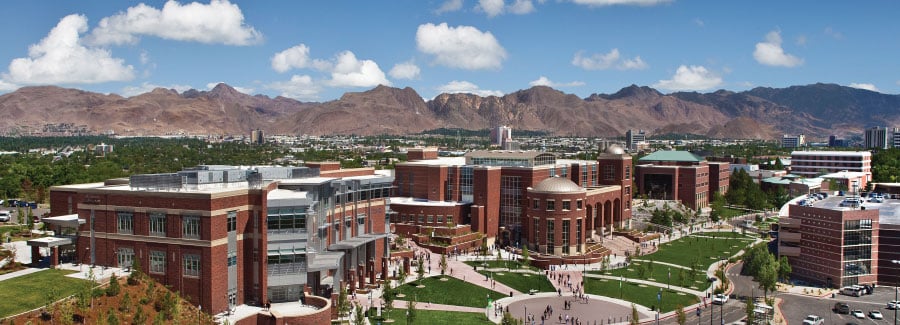The body governing Nevada colleges is planning to use COVID-19 relief funds to cover gaps in budget reductions this year, and also plans to raise student fees and furlough some workers next year to meet rollbacks.
Approved in late March, the federal Coronavirus Aid, Relief, and Economic Security Act (CARES Act) is an economic relief package of more than $2 trillion. About $12.5 billion of that is going to colleges nationwide, with half of that being reserved for emergency aid grants for students.
The University of Nevada, Reno has been allotted $14.2 million and Truckee Meadows Community College is getting $3.3 million. Western Nevada College will be distributed $1.4 million.
In response to the economic decline caused by the COVID-19 pandemic, the Nevada Board of Regents in April approved a budget reduction proposal requested by the governor. Such requests were asked of all state departments.
Nevada System of Higher Education’s reductions show a 4 percent cut in fiscal year 2020, which ends June 30. Budgets showing reductions of 6 percent, 10 percent and 14 percent in the 2021 fiscal year were also outlined during the last Regents meeting.
Shared sacrifice

Chancellor Thomas Reilly said that similar to the economic slowdown during the Great Recession in the late 2000s, NSHE has turned to a “shared sacrifice” model when considering reductions. Scenarios aimed to protect NSHE’s ability to deliver on its higher education mission and each proposal emphasized mitigating financial impacts to low income students and avoiding layoffs, he said.
“The weeks and months ahead will be a difficult burden for all of us to shoulder; however, if we share this burden the individual sacrifice can be lessened,” Reilly said in a statement.
NSHE used approximately $60 million from the CARES Act to meet the gap in the budget reduction. It also used savings from not filling vacant positions, enacting a hiring freeze, repurposing capital funds, reducing operating costs and other contracts as part of the reduction proposal.
To help make ends meet, NSHE focused on furloughs for administrative faculty and professional staff to be effective next fiscal year.
- Under the 10 percent reduction proposal, administrative faculty and professional staff would have a 2.3 percent reduction in pay, or 6 furlough days.
- Under the 14 percent reduction proposal, administrative faculty and professional staff would have a 4.6 percent reduction in pay, or 12 furlough days.
Also, NSHE proposed a temporary per credit surcharge to be assigned as follows:
- UNR and UNLV – $6 or 2.5 percent for undergraduate classes and $8 or 2.7 percent for graduate classes
- Nevada State College – $5 or 2.9 percent for undergraduate classes and $5 or 2.1 percent for graduate classes
- Community colleges – $3 or 2.8 percent for lower-division and 1.7 percent for upper division
The surcharge was calculated in proportion to current student fees at NSHE’s institutions.
By adding this per credit surcharge, Reilly said NSHE will be able to use funding from the CARES Act to support low income students.
“If we did not apply furloughs and the temporary per credit surcharge, we could be facing hundreds of layoffs which would adversely affect student services and student success,” Reilly said.
“By enacting these budget adjustments across the entire system, we will be able to use the CARES Act funds and student access fees to minimize the impact on low income students and keep our institutions focused on student success,” Regents Chairman Jason Geddes said in a statement. “These are difficult decisions to make, but together we can emerge from this economic downturn stronger than ever.”
UNR offered prorated refunds to students living on campus who had to move out of the residence halls in March.
Plans to reopen
Residence halls are tentatively scheduled to open in mid August for the fall semester and in-person classes are planning to start Aug. 29. NSHE also announced this month that limited in-person classes are expected to begin in July.
Meanwhile, campus leaders are working with health experts on various reopening scenarios and phases that include classroom instruction, student housing and sporting events.
Options for classes include a mix of remote and in-person instruction, which could consist of online lectures and in-person lab sessions that allow for social-distancing measures. Other safety measures being considered are class-size reductions, using masks and increased testing availability.
Campuses are also evaluating risk mitigation options for residence halls and dining facilities.
Additionally, Reilly said UNR and UNLV are working with the Mountain West Conference and waiting for further direction from the NCAA regarding athletic events.
NSHE says it plans to follow directives from local and state leaders and observe recommendations from the Centers for Disease Control and Prevention.

